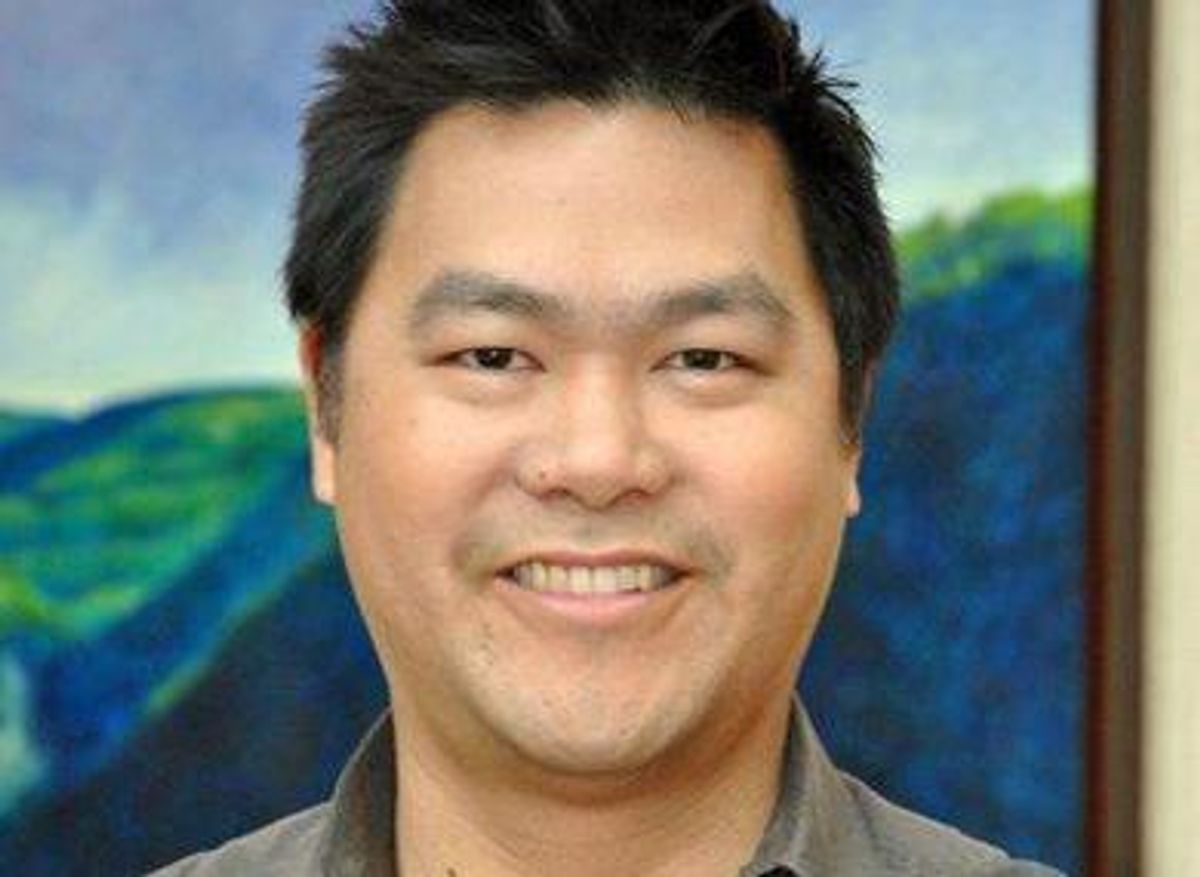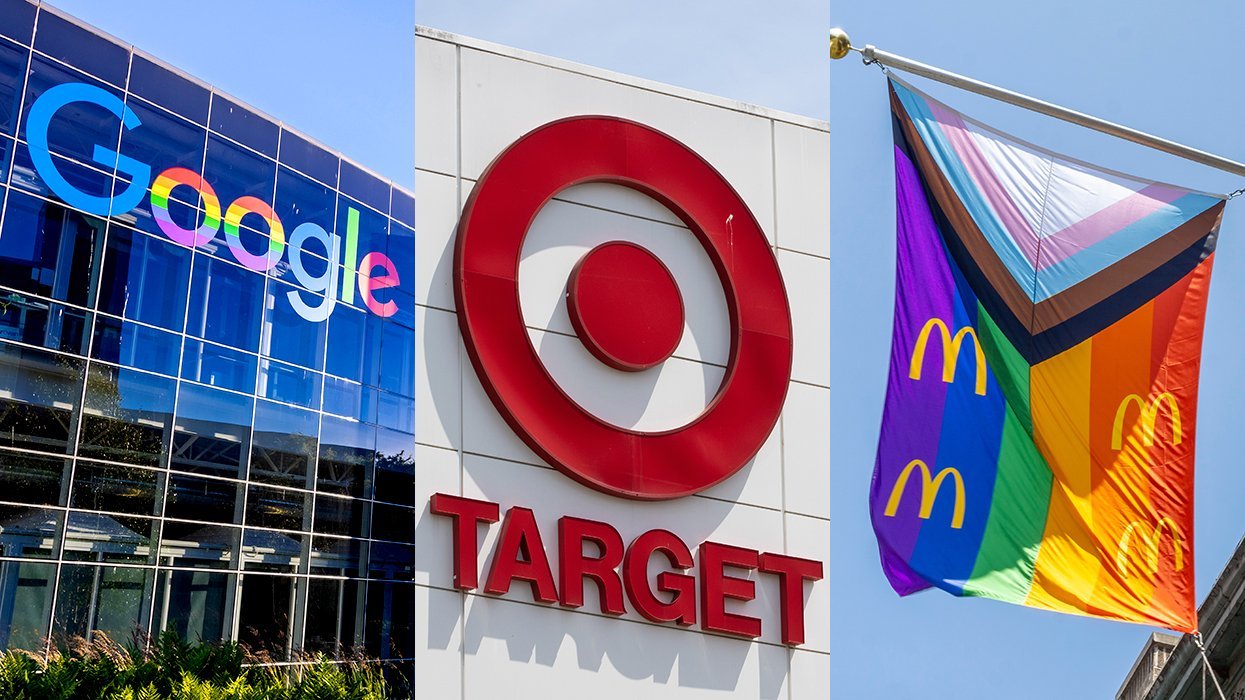
CONTACTAbout UsCAREER OPPORTUNITIESADVERTISE WITH USPRIVACY POLICYPRIVACY PREFERENCESTERMS OF USELEGAL NOTICE
© 2025 Pride Publishing Inc.
All Rights reserved
All Rights reserved
By continuing to use our site, you agree to our Private Policy and Terms of Use.
COMMENTARY: Right now there is a buzz in Washington D.C., and in our communities about the Uniting American Families Act -- a piece of legislation much maligned and misunderstood. Immigration laws and policies are often confusing for families, and the broken immigration system is challenging to navigate. The unique challenges lesbian, gay, bisexual, and transgender families face in this system are often ignored or exacerbated by homophobia and not well understood by those who are not directly affected by the issues. As Asian-American and Pacific Islander immigrants and their families address issues around immigration, LGBT families face additionally unique and burdensome circumstances.
One of the main ways that people immigrate to the U.S. is through sponsorship by certain family members. U.S. citizens and legal permanent residents (or green card holders) may bring their closest family members from other countries to live here permanently through the family-based immigration system.
In all, family sponsorship accounts for more than 85% of legal immigration to the United States.
In the family immigration system, qualifying relationships are grouped into two main categories: immediate relatives and family preference. Immediate relatives are the spouses, unmarried minor children, and parents of U.S. citizens. Relatives in the family preference category are the unmarried or married adult children of citizens, spouses and unmarried children of green card holders, or the siblings of citizens. The annual ceiling for all family-based immigration is 480,000 individuals per year.
Each year the number of family members who apply for visas through the family preference categories exceeds the number of visas available. A combination of limits on overall visas and visa caps per country contributes to long wait times for reunification of immigrant families.
These waiting periods often extend for years and even decades. For example, currently, the brother of a U.S. citizen who is emigrating from the Philippines would expect to wait 23 years for a visa, and the married daughter a U.S. citizen emigrating from India or mainland China can expect to wait 10 years.
Asian-Americans are the most likely to have family members caught up in the visa backlogs because nearly two thirds of Asian-Americans are foreign-born. With so many close loved ones overseas, Asian-Americans rely on family sponsorship to keep their family units intact. Thus, although Asian-Americans make up only 4%-5% of the U.S. population, they sponsor more than a third of all family-based immigrants. Currently, out of the 4.5 million family members in the visa backlogs, nearly half are relatives of Asian-Americans. LGBT individuals who are involved in the broken immigration system must not only contend with the challenges inherent in the long backlogs but the burdens of homophobia and cultural isolation that often compound these challenges. The family immigration system urgently needs reform to reduce the backlogs so immigrant families can be reunited.
The Uniting American Families Act is a complex and important piece of legislation, and it is imperative that we continue to educate members of Congress about the ongoing impact of the broken immigration system on the families of lesbian, gay bisexual and transgender people. The National Queer Asian Pacific Islander Alliance has been holding public forums on the issue around the country over the past two years, most recently in Houston and San Jose, Calif. We anticipate holding another in Los Angeles in August.
For those who live under the shadow of the immigration system, its negative impact is great and intensely felt. For those who do not, the system is seems remote and difficult to understand. Through our LGBT-focused forums and the distribution of new fact sheets, NQAPIA continues to work to raise awareness about the intersections between immigration rights and LGBT equality. Please join us. This is a battle we cannot afford to lose.
From our Sponsors
Most Popular
31 Period Films of Lesbians and Bi Women in Love That Will Take You Back
December 09 2024 1:00 PM
18 of the most batsh*t things N.C. Republican governor candidate Mark Robinson has said
October 30 2024 11:06 AM
True
These 15 major companies caved to the far right and stopped DEI programs
January 24 2025 1:11 PM
True
Trump ally Laura Loomer goes after Lindsey Graham: ‘We all know you’re gay’
September 13 2024 2:28 PM
Latest Stories
The "Greatest" show on Earth: A review of Trump's first 50 days
March 10 2025 8:00 PM
The many terms the Trump administration really hates
March 10 2025 5:06 PM
Body of 'Julie Doe' in Florida identified as transgender woman Pamela Leigh Walton
March 10 2025 4:19 PM
Supreme Court to decide whether states can protect LGBTQ+ youth from conversion therapy
March 10 2025 1:44 PM
When it comes to Trump's transgender military ban, 'surrender is not an option'
March 10 2025 7:00 AM













































































